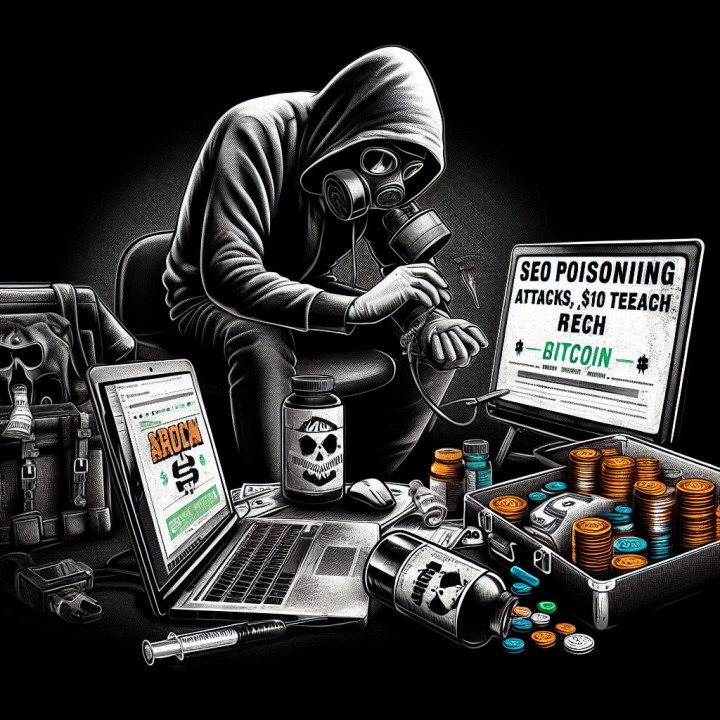
In the digital landscape, search engine optimization (SEO) is a vital tool for enhancing online visibility. However, cybercriminals have found a way to exploit SEO techniques to spread malicious content through a method known as SEO poisoning. This blog will explore the ins and outs of SEO poisoning, how it works, the potential risks, and how you can protect yourself from these deceptive attacks.
What is SEO Poisoning?
SEO poisoning, also referred to as search engine poisoning, is a type of cyberattack where hackers manipulate search engine results to drive users to malicious websites. These sites often contain harmful software or phishing schemes designed to steal sensitive information from unsuspecting users.
How Does SEO Poisoning Work?
Cybercriminals use a variety of techniques to achieve SEO poisoning, including:
- Keyword Stuffing: Attackers overload a webpage with relevant keywords to manipulate search engine rankings, making the malicious site appear more legitimate and higher in search results.
- Backlink Manipulation: Hackers create or purchase backlinks from other websites to increase the perceived authority of the malicious site, further boosting its search engine ranking.
- Cloaking: This technique involves showing one set of content to search engines and a completely different set to users, deceiving both parties.
- Phishing Sites: Malicious actors create fake websites that closely resemble legitimate ones, tricking users into providing sensitive information such as login credentials or credit card details.
- Malvertising: Hackers use deceptive online ads to lure users to dangerous websites where malware can be installed on their devices .
Risks Associated with SEO Poisoning
SEO poisoning poses significant risks to both individual users and businesses:
- Malware Infection: Clicking on a poisoned link can result in the download of malware, leading to data breaches, ransomware attacks, and system corruption.
- Phishing Scams: Users may unknowingly enter personal information on fraudulent sites, exposing themselves to identity theft and financial fraud.
- Brand Damage: If a business’s website is compromised or linked with malicious content, it can suffer severe reputational damage, leading to loss of customer trust.
- Financial Losses: Both individuals and businesses can incur substantial financial losses due to fraud, data theft, and the costs associated with recovering from a cyberattack .
How to Protect Yourself from SEO Poisoning
To safeguard against SEO poisoning, consider implementing the following protective measures:
- Install Reliable Security Software: Use up-to-date antivirus and anti-malware programs to detect and block access to known malicious sites.
- Exercise Caution When Clicking on Search Results: Be wary of links that seem suspicious or too good to be true. Stick to trusted sources, especially when searching for sensitive information.
- Verify Website Authenticity: Always check the URL of a website before entering personal information. Look for HTTPS encryption and proper branding to ensure the site’s legitimacy.
- Educate Your Team: Provide regular training for employees on how to recognize phishing attempts and other online threats.
- Regularly Monitor Your Website’s SEO: Conduct frequent audits of your website’s SEO performance to ensure it hasn’t been compromised by malicious actors .
FAQs
Q: What should I do if I suspect a site is part of an SEO poisoning scheme?
A: Immediately close the website and avoid interacting with any content. Run a full system scan with your antivirus software and report the site to the appropriate authorities or search engine.
Q: Can SEO poisoning affect my website’s ranking?
A: Yes, if your website is compromised and linked with malicious content, it could negatively impact your search engine rankings and damage your brand’s reputation.
Staying Safe in a Digital World
SEO poisoning is a growing threat in today’s interconnected world. By understanding how these attacks work and taking proactive steps to protect yourself, you can reduce the risk of falling victim to such schemes. Always remain vigilant when browsing the internet, and ensure that your cybersecurity measures are robust and up-to-date.
For more insights on staying safe online, check out our guide on website security and visit Heimdall Security for additional information on SEO poisoning.




